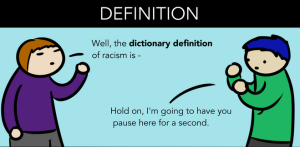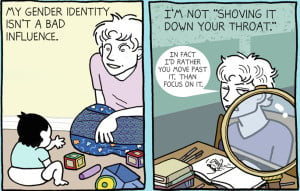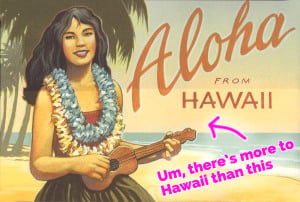Francesca: Are Hispanic people white? Well, that depends on who you’re talking to. There’s a very confusing statistic about the percentage of white people in America, thanks to a clause in the US census that refers to “white, non-Hispanic.”
Now, if you’re white with European ancestry, Asian with Asian ancestry, or Black with African ancestry, this may not be something you’ve ever even thought about.
Let’s look at the 2010 census. If you checked the box that simply says “white,” this registers you as “white, non-Hispanic,” which makes up 62% of the population; but together, white, Hispanics and Latinos are 77% of the population.
If that seems like a quick way to boost the number of white people living in this country, that’s because it kind of is. If that also seems really confusing, that’s because it is.
If you ever hear anyone say, “This is America, and 77% of it is white,” whether they know it or not, they are in fact including a very large number of people who identify as Hispanic or Latino.
If you look at the 2010 census application again, the difficulty is that “Hispanic” is not considered a race. The census asks you to choose your Hispanic, Latino, or Spanish origin, then choose your race between the six categories offered. Not only is this a hell of a shock when you consider that over 55 million US citizens are Hispanic, but I guess the “some other race” category is supposed to be a passive aggressive catchall for their beautifully diverse culture – and even that option doesn’t really work.
According to the US Census Bureau, most people who mark “some other race” are often counted as white. If “Hispanic” isn’t a race, then what is it?
Before we get to that, we actually have to settle another important thing: What’s the difference between Hispanic and Latino? I’m going to enlist some help from my friend, Kat Lazo.
Kat: Thanks for having me, Francesca. It may get a little confusing if this is your first time hearing this, so I’ll try to keep it as simple as I can.
“Hispanic” refers to people of Spanish-speaking origin. It means you have a family history in a Spanish-speaking country. This means you have origins in these countries, including Spain.
Notice how Brazil isn’t included in the map? Well, that’s because they don’t primarily speak Spanish. They speak Portuguese, which brings us to Latino, or Latinx if you want to be gender-inclusive, which you should be. “Latinx” refers to having origins in Latin America, which is basically the countries in North and South American that are geographically south of the United States, including most of the Caribbean.
Unlike “Hispanic,” “Latinx” excludes much of Latin America’s colonizer, Spain. One more time: “Hispanic” refers to language, and “Latinx” focuses on geographic location.
Whichever term you use, neither of them actually refer to racial identity. Just like America, Latin America has a long and complex history that intersects between native people, European colonization, African slavery, and global immigration patterns, which is why there are white Latinos, native Latinos, black Latinos, Asian Latinos, and every kind of mixture that you can think of. Does that help?
Francesca: Yeah, that does help, but I think part of the problem we’re dealing with here is the broader confusion between ethnicity and race. As we’ve covered, race is not biologically real. It’s basically an ever-shifting categorization that sometimes includes ethnicity and sometimes doesn’t.
When it comes to ethnicity, there are legitimate differences between groups of people that aren’t based on external characteristics. Yes, ethnicity can get fuzzy, but there are cultural practices you can associate with it, like language, cultural values, and traditions, which is why when an Argentinian couple adopts a baby from China, that baby will mostly likely grow up speaking Spanish and rooting for Lionel Messi.
The simple answer? Race doesn’t exist, but ethnicity does.
Kat: Exactly. The reason this gets so confusing when we’re talking about Latinx in America is that there’s a broad ethnic Latinx identity that has a complex history with lots of different racial groups living together. Latinx isn’t a race, but we’re definitely racialized as a people, which is confusing, and I’m the one who said it.
The US and Latin American media has done a great job of constructing an image of what Latinxs look like, and that image is rarely black or fully indigenous, for example. We, like the rest of the world, have internalized these messages of white supremacy through the media and through our education.
It’s no wonder that when Latinxs here in the US are confronted with deciding their race based on the census, in a predominately black and white binary society, many of us default to white. I personally identify as a mixed race Latina with indigenous ancestry, but that’s just me.
There are a multitude of ways that Latinxs choose to identify racially, but it’s up to us to unlearn much of what we’ve been taught about race and demand better and more accurate forms of representation.
Francesca: Damn. There has to be a better way to talk about this.
Well, there is a better way. The census is planning to make changes in 2020 in one huge way. They’re going to stop using the word “race” altogether.
Hispanic, Latino and Spanish origin will be a category like everything else, with no qualifiers. That means people will now check the categories that best describe them. This will not only give us a better idea of how many people identify as Hispanic or Latino, but could also give us a better idea of multi-racial and multi-ethnic numbers.
To return to the original question, are Hispanic or Latino people white? Well, some are, and some aren’t. To quote the 2013 Census Bureau report: “Race and ethnicity are not quantifiable values. Rather, identity is a complex mix of one’s family and social environment, historical or sociopolitical constructs, personal experience, context, and many other immeasurable factors.”
Hmm. Surprisingly woke, coming from the census.
Special thanks to my friend, Kat Lazo. Tell us where we can find you online.
Kat: You can check out my work at Mitú, or my personal channel, Thee Kat’s Meoww.
Francesca: We’ll put links in the description box. Thanks so much for watching. We’ll see you next time right here on Decoded.




















